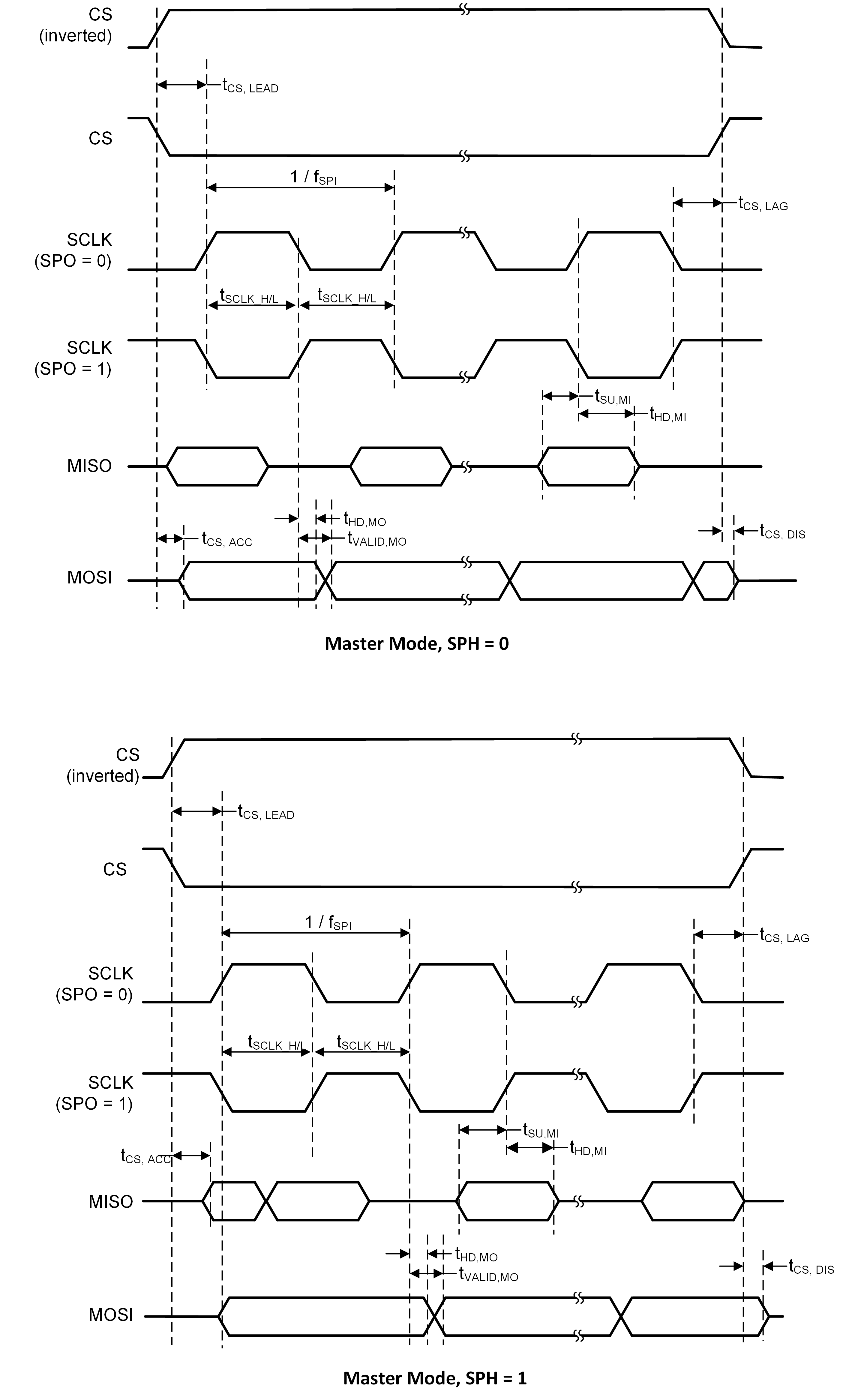SWRS266B December 2022 – April 2024 CC1354R10
PRODUCTION DATA
- 1
- 1 Features
- 2 Applications
- 3 Description
- 4 Functional Block Diagram
- 5 Device Comparison
- 6 Pin Configuration and Functions
-
7 Specifications
- 7.1 Absolute Maximum Ratings
- 7.2 ESD Ratings
- 7.3 Recommended Operating Conditions
- 7.4 Power Supply and Modules
- 7.5 Power Consumption—Power Modes
- 7.6 Power Consumption—Radio Modes
- 7.7 Nonvolatile (Flash) Memory Characteristics
- 7.8 Thermal Resistance Characteristics
- 7.9 RF Frequency Bands
- 7.10 861MHz to 1054MHz—Receive (RX)
- 7.11 861MHz to 1054MHz—Transmit (TX)
- 7.12 861MHz to 1054MHz - PLL Phase Noise Wideband Mode
- 7.13 861MHz to 1054MHz - PLL Phase Noise Narrowband Mode
- 7.14 Bluetooth Low Energy—Receive (RX)
- 7.15 Bluetooth Low Energy—Transmit (TX)
- 7.16 Zigbee and Thread - IEEE 802.15.4-2006 2.4GHz (OQPSK DSSS1:8, 250kbps) - RX
- 7.17 Zigbee and Thread - IEEE 802.15.4-2006 2.4GHz (OQPSK DSSS1:8, 250kbps) - TX
- 7.18 Timing and Switching Characteristics
- 7.19 Peripheral Characteristics
- 7.20 Typical Characteristics
- 8 Detailed Description
- 9 Application, Implementation, and Layout
- 10Device and Documentation Support
- 11Revision History
- 12Mechanical, Packaging, and Orderable Information
Package Options
Mechanical Data (Package|Pins)
Thermal pad, mechanical data (Package|Pins)
Orderable Information
7.18.4.3 SPI Master Mode Timing Diagrams
 Figure 7-1 SPI Master Mode Timing
Figure 7-1 SPI Master Mode Timing